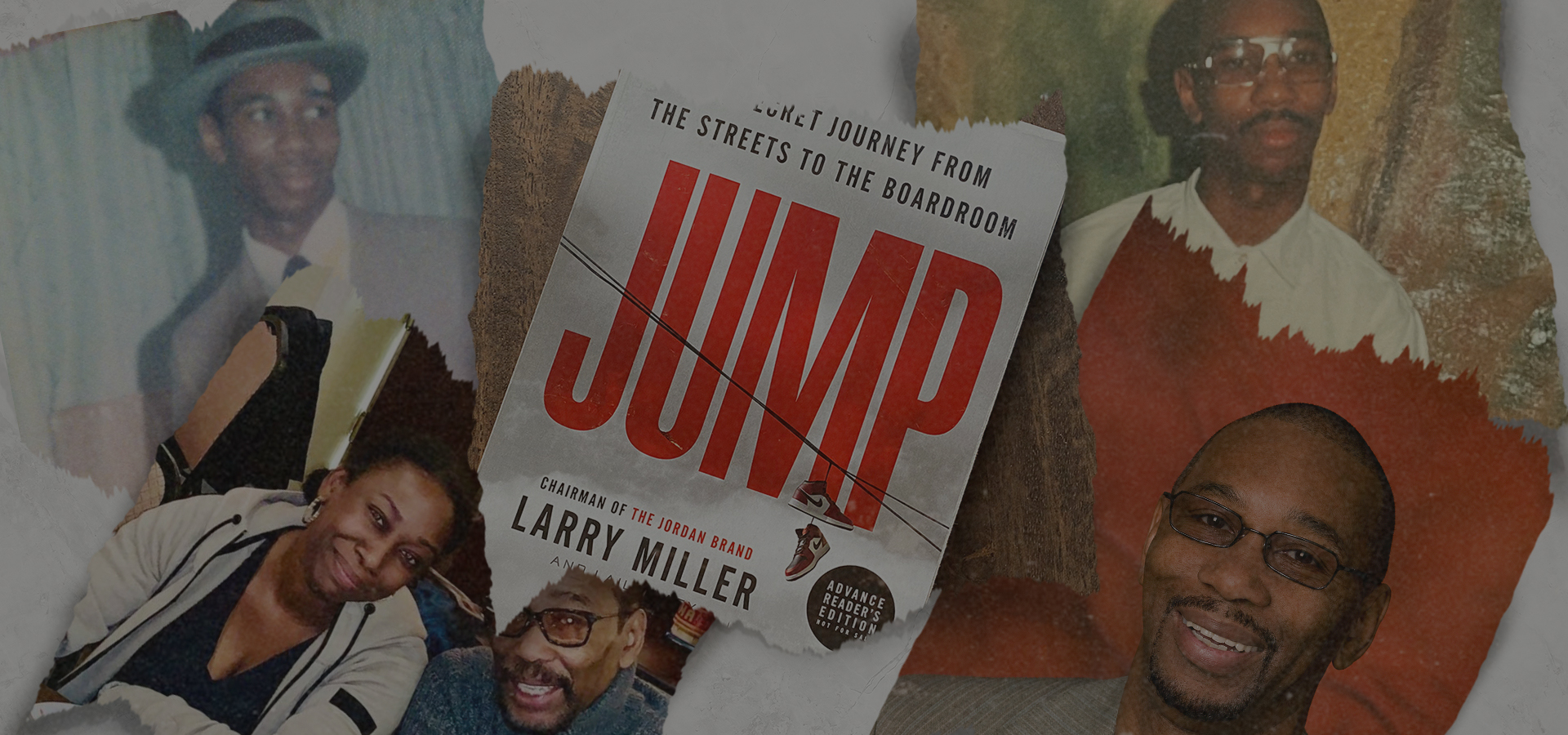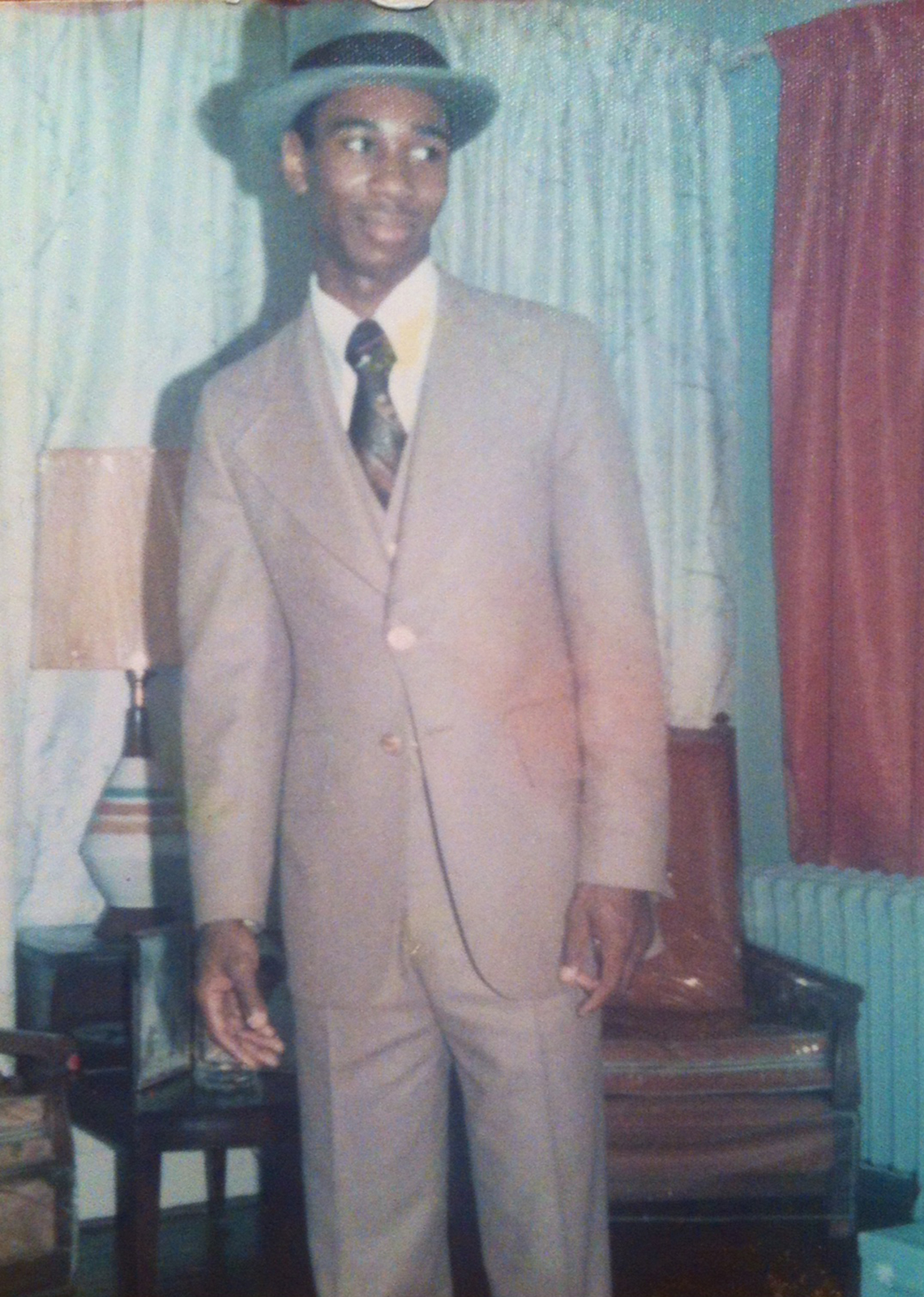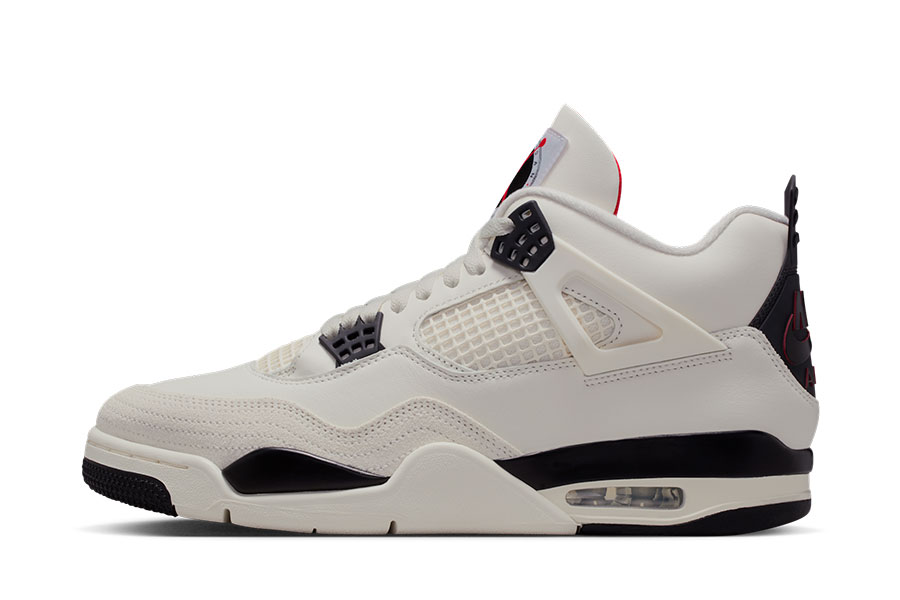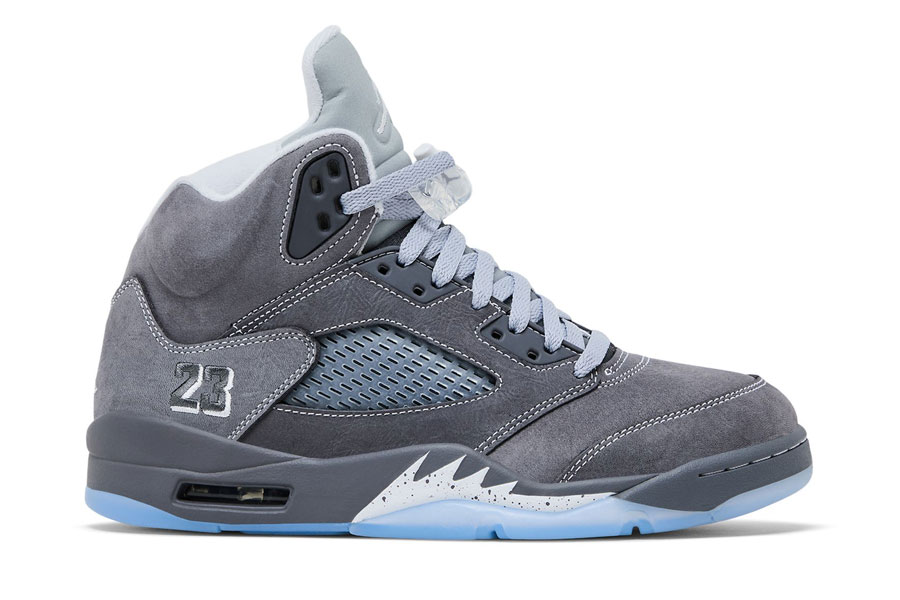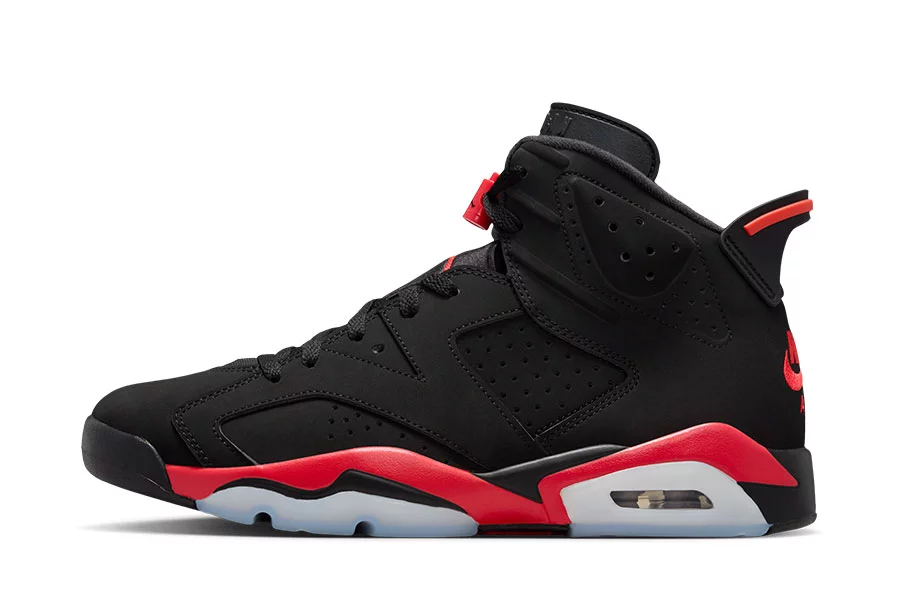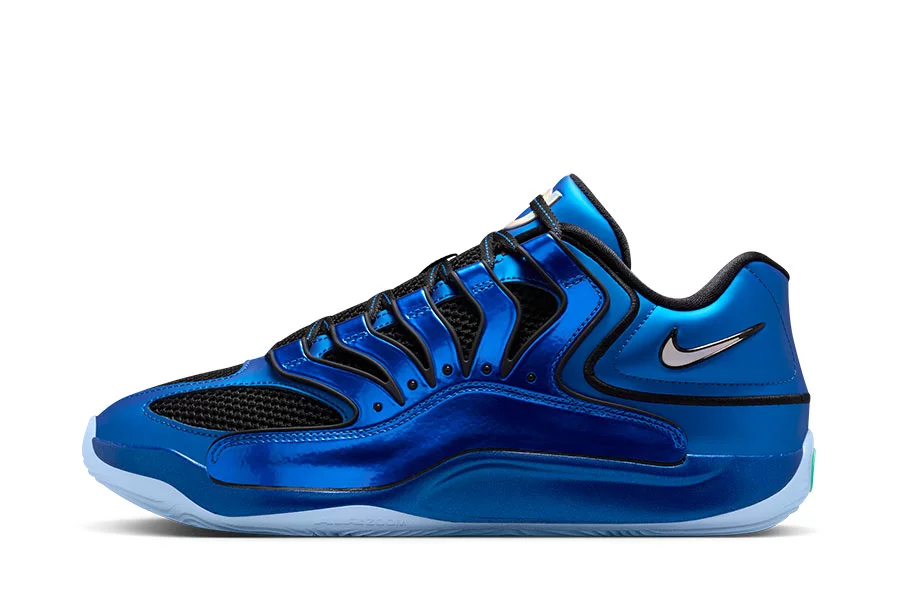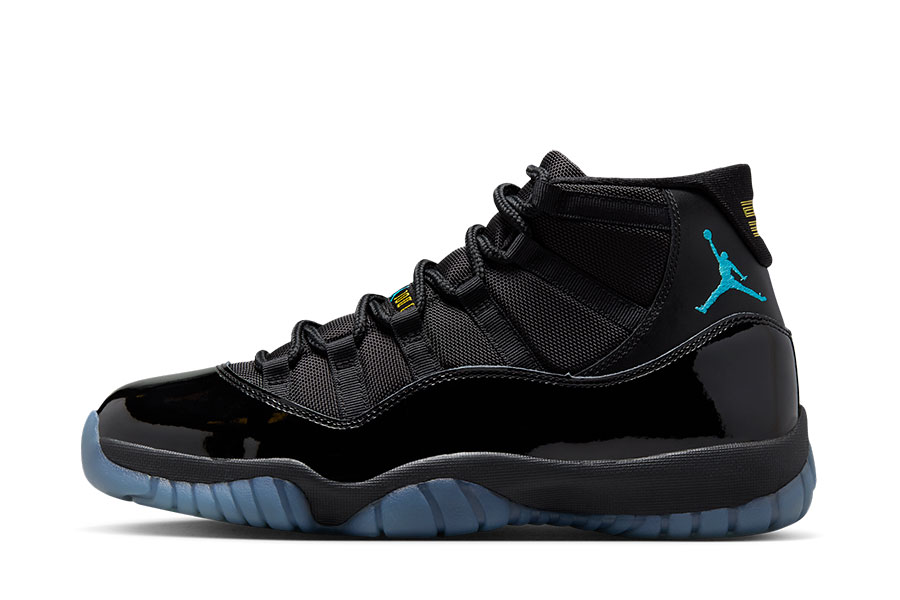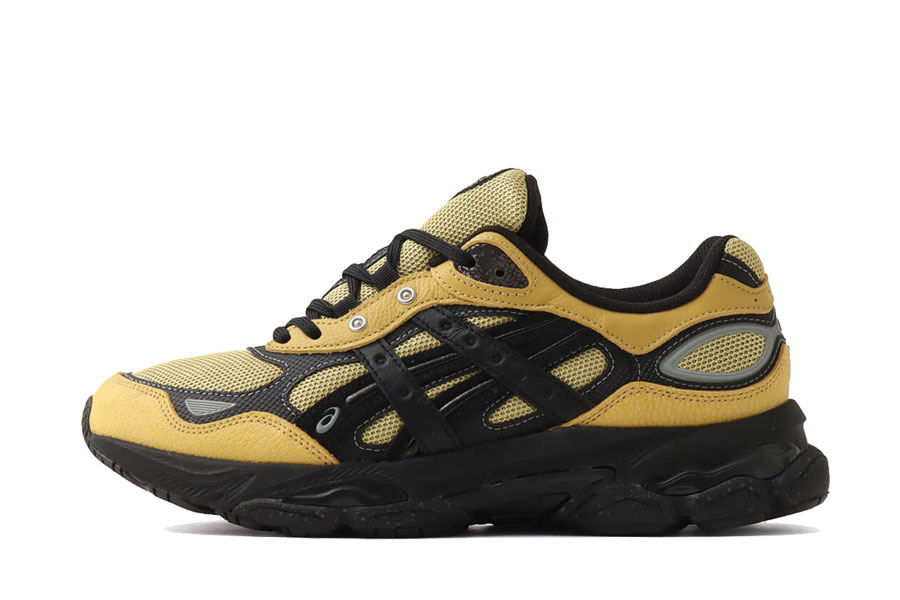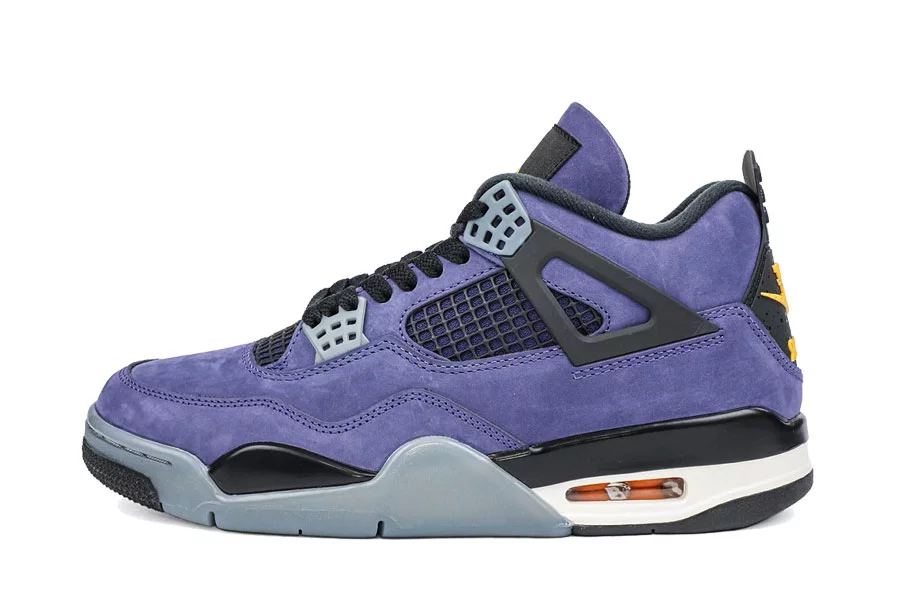
Wait…what? He killed a guy?
That was the general response to some headlines back in October when it was revealed that Larry Miller, current chairman of Jordan Brand, went to prison for murder. This compelling story, described in detail in his upcoming book Jump, was originally revealed as part of an exclusive interview with Sports Illustrated; the man with a decorated professional resume that includes hefty positions such as President of Jordan Brand and President of the Portland Trail Blazers had quite a dark past, but one not unlike many black youths that grew up in West Philly and other other inner city landscapes in the 1950s and 1960s.
Right off the bat, there’s a piquing story that details the official event for the launch of the Air Jordan 15. It’s always a treat to get in the head of an individual who has had an unobstructed front row seat to the evolution of Jordan Brand since its inception. Not even ten minutes of reading later is the dark tale of why and how Larry shot and killed an innocent man.
But beyond that is the compelling story of how someone stuck in a tunnel with a light-less end chipped away at a concrete situation and found an opening. He and his daughter Laila, who co-wrote the book, paint a clear picture with contrasting nuance that reads less like an autobiography and more like a morphing movie script that shifts scenery chapter by chapter. It’s hard not to picture scened from American Gangster and Shawshank Redemption.
Should you be interested in reading it yourself, Jump is available for pre-order now ahead of its January 18th release. Buy on Amazon.
Larry Miller: I didn’t come to that conclusion on my own. My daughter kind of pushed me to say, you know, dad, you need to tell this story. From her perspective, the way she puts it, is my family was motivated by my story. They were inspired by my story. And her thought was that it’s inspiring to us, so it can inspire other people. She worked on me and convinced me that it was something that we should do – that we should write this book and share this story with the world, because it could help some people in a positive way. And so it was really her pushing and her efforts that convinced me to do this. If it was up to me before all of this, I probably wouldn’t have said anything.
Now that we put it out there and now that we have told the story, I’m really glad that we did because I do believe it can have a positive impact on some people. I do believe that it can be motivational and inspirational to some folks. But it took a while for me to say, okay, I’m good with us doing this because, you know, for me, I’ve been carrying this secret around for over 40 years and doing everything I could to keep it tight and to keep it a secret and now to say, okay, I’m gonna open up to the world and tell the world this story and share all of this with the world – that was challenging for me. That was really, really tough. But the more she and I worked on it and the more she worked on me, the more convinced I became that it was the right thing to do to – to share this.
If those two hadn’t given me the green light, I don’t know if I would’ve done it or not
Larry Miller on Michael Jordan and Phil Knight’s response to the book idea
What was it like co-writing a book with your daughter?
Well she has a degree in English from Howard University, by the way. I know she’ll like the fact that I plugged Howard. But the way the process worked – once I agreed to start, she was pushing me from the get-go. We would get together for hours, maybe four or five hours or whatever at a time, over a long period of years. And we would spend time together, we’d talk, she’d ask questions, I’d answer, and she would record it and then she’d go back and transcribe that. By the end we had a document, but it wasn’t in book or story form. That’s when we decided that we need to connect with some people. We connected with CAA, we need to connect with some folks and figure out how to take this and turn it into a book.
But it was rewarding and challenging working with her. It was rewarding in that it helped me to relieve a lot of the pressure and stuff that I was feeling by keeping this in, and through the process, she and I got became closer. She got to know a lot about me that she didn’t know. It was really a great process. I think we are much closer now than when we started this process. She feels like she knows me a lot better now. For me, I think part of what made it more comfortable working with her and talking to her on this is that, you know, I know she’s gonna love me regardless of whatever I shared with her. It made me more comfortable and open. Once that process started it became easier for me to share in general, but it was really the connection and the relationship with her in this process that really allowed me to open up and be willing to share this story.
I think we are much closer now than when we started this process.
Larry Miller on working with his daughter Laila Lacy
Co-writing a book with your daughter is a unique experience that not many people get to do. Was particularly shocked at some of things you shared?
She knew some of the things, but there were a lot of times during the process that she would say, ‘dad, time out, I need some time to deal with what you just told me. I need to process this’. There were definitely times that she had to stop and kind of regroup and really deal with the things that I was telling her and the things that I was sharing with her that I had done. There were many times along the way where she was like, hold on, I need to take a break. We, we went through that a number of times.
What was Michael Jordan’s reaction to the secret?
Two of the first people that I shared with the idea of doing this were MJ and Phil Knight. And I think if either one of them had been reluctant or had said, ‘Hey, maybe you shouldn’t do this’ I probably would’ve been reluctant to do it. But both of their response was ‘you have to tell this story, you need to share this with people, I’m here to support you and help however I can’. So they they’ve been extremely supportive. My Jordan/Nike family has been incredibly supportive throughout this whole process. The encouragement and support has really led me to believe that I’ve done the right thing with this. But if those two hadn’t given me the green light, I don’t know if I would’ve done it or not, but the fact that they both gave me the green light, and encouraged and supported me, that just told me that, yeah, this is something I need to do.
And that validation’s really important just in general when you wanna express yourself.
Right. No question, no question. And especially to me, validation coming from two people that I have the utmost respect for, for them to say, ‘Hey, you know, you should do this. This is a story that the world needs to hear about’, that really made me feel like this is the right thing to do.
After you got out of prison, you were able to take advantage of the resources that were provided to you after you got out, which helped you start the rebuilding process. Do you think there’s enough of that in today’s modern prison prison system? How aware are you what the current status of the educational rehabilitation in the system?
One of the reasons that I think this was important to do is that the program that I took advantage of doesn’t exist anymore in that prison in Pennsylvania. I took some classes inside the prison, qualified to get into this program where you actually lived in trailers outside the prison, and then left every day to go to school and come back. That’s how I, through that program, I got my Associate’s degree and then transferred to Temple, got my Bachelor’s. Programs like that particular program do not exist anymore. I couldn’t do what I’ve done because that program is not in existence so to me, that’s one of the reasons to do this – is to talk about the fact there are programs that are helping people to get educated or learn some type of skill or whatever while they’re inside is gonna help not only them, but also society once they get out. I feel like my story is proof that somebody can change, that somebody can change their life and turn their life around and become positive members of society. And I think that’s one of the goals for this book.
All the way, all along the line, I kept questioning, am I doing the right thing?
Larry Miller on dealing with the anxiety of cancel culture
That’s particularly important today because in the past you were able to keep your incarceration as a secret, whereas today it’s unlikely a record like that can be hidden. A hiring manager of a company could read your story and think one of two ways; they’ll either see a need to really focus on this person’s talent right now and what they offer us, or they could even double down on background checks. How would you want an employer or a company to receive the message that your book is looking to relay.
I’m hoping that through this book, the perception of formerly incarcerated people could potentially change and that folks would be willing to give a chance and an opportunity to someone, even though they’ve made a mistake and maybe done something crazy in their life and been in prison. If we can impact the perception that people have of formerly incarcerated people, I think that would go a long way to making it so that we shouldn’t judge somebody by the worst thing that they’ve done in their life. I think people have the potential to change. And I think given the right opportunities, people can change and move forward in their life.
I feel like this story is a prime example of that. And if hopefully someone looks at the story and says, you know, wow, maybe I should give this person a chance. The people that know me now have a hard time seeing me as that person from before, because I’m not that person anymore, and the people that know me now know me as who I am today. I was talking to a couple people and they were like, ‘man, I thought you were punking us when you were telling us that…I couldn’t believe it’. But, like I said, to me the hope is that this story can change people’s perception and maybe motivate people to give folks an opportunity.
Do you, do you see yourself, perhaps in the next phase of your professional life, devoting your energy and focus to prison reform? How would like to see corporations and companies have more outreach programs for formerly incarcerated people?
Absolutely. I think this book is a platform to help address some of these situations and add my voice to the fact that there needs to be some change and some improvement in how people are treated in incarceration. Just warehousing people doesn’t do anybody any good, but providing opportunities for folks to learn, develop some type of skill or education that they can bring with them once they do get out – that’s a goal and I definitely want to lend my voice to that and be a part of moving it forward.
Whether it’s outreach programs or actually going into prisons and helping to educate and teach people skills inside of prisons so that they’re prepared when they do come out, I would love to see more companies get involved in that type of effort, because – and I tell people this all the time – some of the smartest, most creative, intelligent people I’ve ever met are in prison or were in prison. If you could harness some of that creativity and that intelligence and have those folks focus on a positive aspec and use those skills in a positive way, there’s a lot of potential there inside of those prison walls that could be really beneficial to society at large.
In today’s landscape of social awareness, cancel culture is such a big thing. Anything viewed as wrong or insensitive, whether it be just an opinion, a political leaning, or a tweet from 10 years ago, nothing is safe from cancel culture. There must have been some points where you thought, that maybe this book is a bad idea. Can you like talk about some of those anxieties that you had?
All the way, all along the line, I kept questioning, am I doing the right thing? Should I really be doing this? What’s gonna be the impact of this? And every time I would go through that process, I would come back to the fact that the potential of positive impact on people’s lives is worth me putting myself out there and taking the risk of what comes with it. But, you know, I questioned it a lot along the way. And every time I would come back to the fact that this is the right thing to do, because it’s gonna hopefully have a positive impact on a lot of people’s lives. And that that’s, that’s been the goal.
There’s a lot of potential there inside of those prison walls that could be really beneficial to society at large.
Larry Miller on societal views of incarcerated and formerly incarcerated people
Obviously the book isn’t just about this one secret. What are some other points about this book that you were really proud of, or that you would want people to remember at the end of reading it?
The biggest thing that I would want people to remember is that I did this, but I’m not the only one who is able to do this. I think that if given the right opportunity, given the right resources and support and encouragement, I think there are a lot of folks who are in the situation that I was in. I’m hoping it will be able to change their lives and change their situation based on what this book brings not just to them, but to your point earlier to the people who are hiring or have the ability to hire, or have the ability to teach or train people, or have the ability to give people an opportunity to me, hopefully this book touches those folks as well as the people who are either incarcerated or going down that path. I’m just hopeful that, um, this can have a positive impact on as many people as possible.

